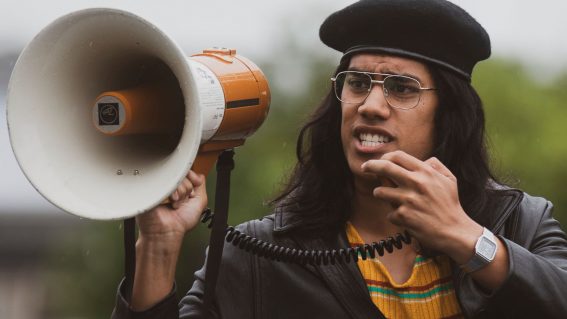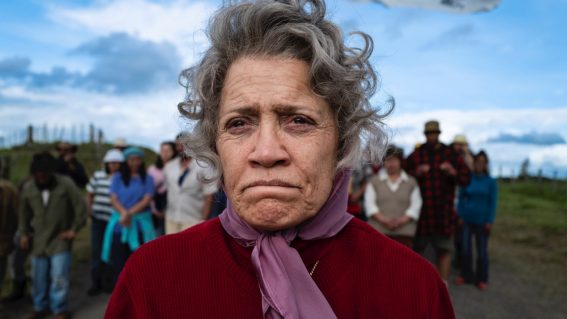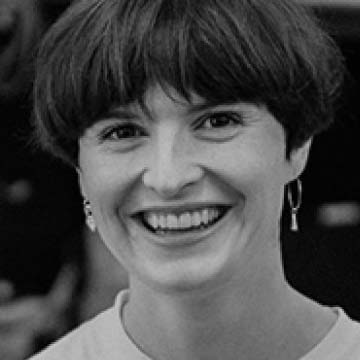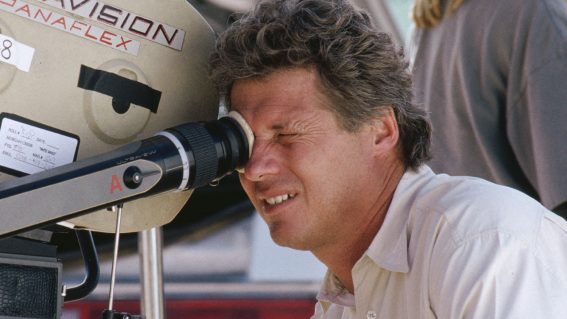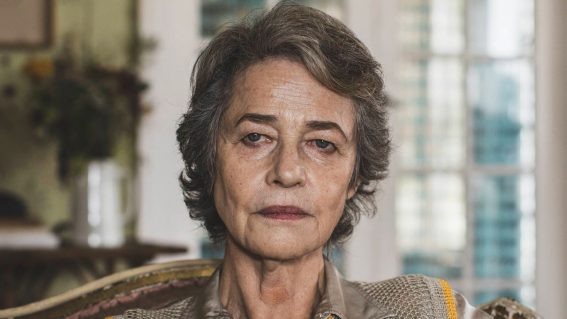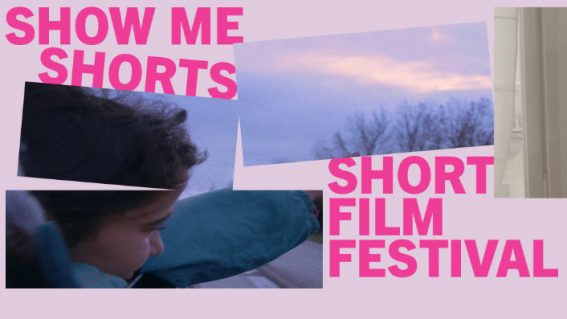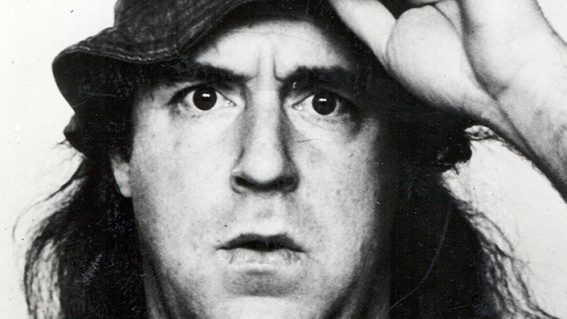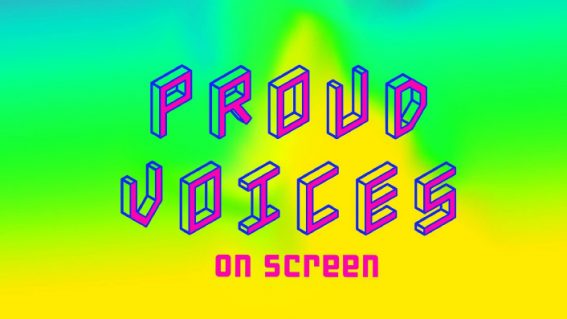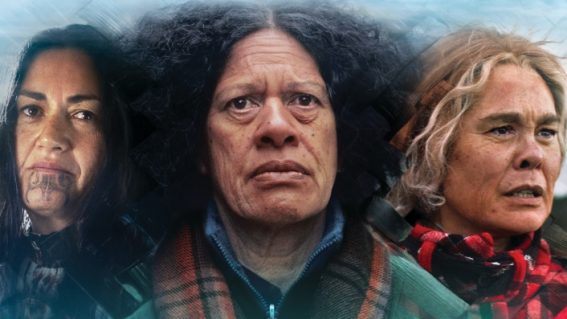Kimbra tells us about the music and risk-taking of Daffodils
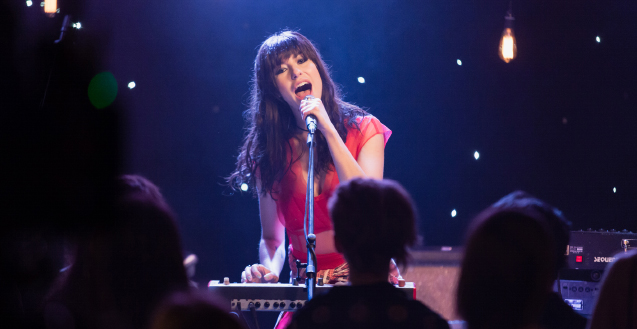
Kiwi musical romance Daffodils is the cinema adaptation of the stage show of the same name, repurposing classic songs from Aotearoa to tell the tale of the bittersweet relationship between a singer’s parents.
Kimbra makes her big screen debut as Maisie, who envisages the fragile romance between her folks (Rose McIver and George Mason) as she plays a gig full of iconic Kiwi songs, by everyone from Ray Columbus and the Invaders to the Mint Chicks.
Steve Newall sat down with Kimbra to chat about her first foray into acting, the musical element to Daffodils, and the importance of risk-taking.
The interview has been edited for length and clarity.
FLICKS: A lot of your screen time in Daffodils is performance-based, which is something you’d obviously be already familiar with playing live and on music video shoots. But how did you sustain the energy that’s required to act like you’re playing a show for the amount of screen time required here? How much time are you spending on that stage gearing back up into, “I’m mid-gig mode again”?
KIMBRA: That’s actually the hardest part I found about the whole process is because what that I do is, when I go into a show, I exert all this energy in one fell swoop, and then I switch off. And if I do some fan interactions, it’s a bit of on and off. But basically, it’s just go back to the tour bus, sleep, but then go for it again. This was on, off, on, off, on, off, so that was a new experience for me. And I watched the actors and sort of picked up some tips on how they can keep up energy, because some of them stay in character when they call “cut”. That meant for me just kind of staying in that space of doing maybe some more push-ups or just stretching or kind of just staying activated.
But yeah, it’s a whole new skill set. And it was good for me to learn that, because I’m naturally a bit of a restless kind of person and find it quite hard to just take a pause. So I think I found that a good mental challenge in some ways, and I enjoyed it. I enjoyed being a beginner at something again.
That’s nice, isn’t it, to kind of get the adrenaline and risk factor back?
Yes. That’s right.
What was your first day on the shoot?
Man, first day was straight into crying, yeah, with my dad on the deathbed. Yep, so that was a big one. And, of course, I had to bring to mind a lot of my own experiences. I’m a daddy’s girl and very close to my father. And so, of course, I had to think about what that would be like for me. And I’m in a real hospital, and it happened to be a hospital where my mum had once worked as well, so they were things that were very close to home. Yeah. I managed to get through that scene, but it was definitely being thrown in the deep end [laughs].
Is it kind of good to do that on your first day?
Maybe it was, yeah, because the other stuff, pretending to play a gig, obviously came pretty naturally. I just did what I do. But that stuff was a bit more like, “Okay. Wow. Let’s prepare.” And I’m so lucky I had such amazing co-actors like George [Mason] and stuff. Man, they just made me feel so welcome in that space. Every time the camera would go off, we would just have a little hug or just reconnect and try to get that father-daughter dynamic, which of course is very strange because we’re both the same age. But yeah, having the support of them to help me through it, being the beginner, was really nice.
Is it hard to disappear into that, to cross that line in acting between, “That’s my new mate, who’s my age, but with makeup on,” and, “That’s Dad”?
Yeah. It is hard, and it takes a lot of discipline, really, because you can’t look at the person and think, “Oh, they’re attractive”. You really have to go into the space of, “What about this person’s face reminds me of my father’s? Where is the tenderness in their eyes? Where is the kindness? Where is the softness of touch that reminds me of what it feels like to hold my father’s hand?” And you have to bring to mind all of those things or pretend to know the great arts of acting. But for me, it was easy, at least, for me to go there because I have so many great memories of my father. And we spent a lot of time looking at photographs of him. And he would spend time thinking about a niece of his, George would. So you’ve just really got to make it your own story.
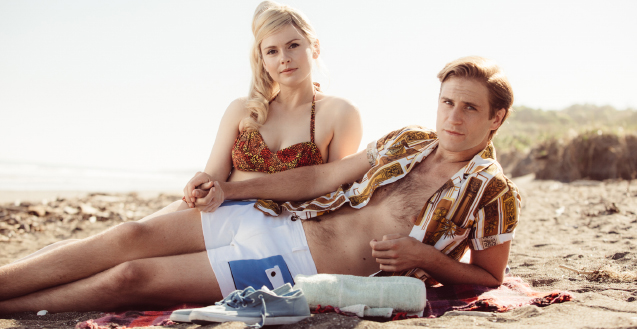
When it came to the reworking the music for the film, was it predominantly Lips-driven with you singing? Or did you collaborate on reworking the songs?
We collaborated. Yeah. I mean, I think they know I’m a producer of my own work, and so they wanted my input on things. And that was really nice, to feel like I was a part of making suggestions in the arrangements of things. But I was living in New York and working on things in New York at the time of a lot of that stuff going on. So I really had to trust that they were doing a great job, and they really did.
That’s a big reason why I signed on to do the film because I knew the music would be at such a high quality, and we wouldn’t be just covering the songs like they were just pop songs. We would actually be crafting them. And they really wanted a lot of input from me on how to arrange vocals and make things feel like they still represented a bit of what I’d do as an artist, so I’m really grateful for that.
The music’s ended up in an interesting place because, as you’ve alluded to, they’re not covers. I presume that probably, at some point, you’ve brought other people’s songs into your sets, but then it becomes a Kimbra version. And this is something that’s quite different, right? It’s not kind of designed with an artist, as such, in mind.
No. I mean, I think that we’re using the songs to tell the story, so really, that’s their prime focus. Yes, they start off with Maisie singing them at a pub as if she’s just got them in her set list. But really, they soundtrack a time of her parent’s life. And their main utility in the film is to actually be the subconscious of the characters. When the characters don’t know what to say, this music comes out of them as the voice sort of in the back of their heads.
So yeah, it was really cool to see how that all turned out because none of us knew how that was going to work, practically, in the end product. But the way it comes across is actually quite easy to follow. We all know what that’s like when you just don’t have the words, but you have a song in the back of your head or you hear a song on the radio while you’re fighting with your girlfriend and boyfriend, and that says everything that you need to say, you know?
Not knowing how it would all integrate with the finished product, as an artist who is pretty in control of your own stuff, what’s it like to pass that control onto someone else?
Pretty foreign, and that’s exactly why I took the role, I think, because I thought that is something I have trouble with sometimes is actually being able to let go. And I’m so deeply attached and devoted to every part of the process and what I do with my career that I thought it could be really interesting and good as a life lesson to go into this being like, “I’m here to serve the director’s vision. And I’m going to do my absolute best, but when I walk away from this film, I have no idea what is going to come out. And every day I step onto that set, I’m not representing myself, but I’m representing Maisie.”
And it was a welcome break, to be honest. My world is very self-focused a lot of the time. Even the name I use on stage is my own name, and it’s like there’s just a lot that I have to do that’s quite absorbed in the self. And honestly, I mean, I think it can be really exhausting spending that much time on your own work [laughs]. It’s nice to actually be a part of something that’s bigger and more about the sum of its parts. Yeah.
How did that sort of team aesthetic manifest? What’s an example of when that kind of clicked for you?
It’s the way everything flows and everyone has a perfect role. I go into makeup, and there’s someone who’s like, “Kimbra going to makeup,” and does your makeup. And then I do makeup in here, and that’s down to a T. And then, “Kimbra leaving to go to set.” And then on set, there’s someone with water, and then there’s someone else… Everyone has a role, and everyone kind of moves like a ballet. They know to go here when this person goes there.
In the music industry, it isn’t all like that. If I arrive at a venue and it’s time for sound check, man, even at the most professional venues, you just never know what you’re walking into. It’s just such a gamble at all points. And there’s this symphonic sort of accuracy to working on a film. I mean, it’s so much money being spent that they really have to be so on top of it. And that was pretty inspiring to me. I was like, “Wow. Look how everything works so well. Everyone’s so nice [laughs].”
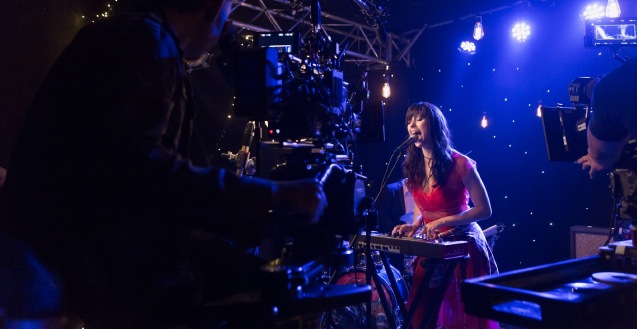
Thinking about just those differences between the music biz and film, have you evolved a set of sort of rituals of how you manage music and manage live performance? And did you find some of those did and didn’t work so well with the film? Did you come out of this with maybe a different set of stuff to draw upon?
Yeah, skills, absolutely. I think if I continue to do this, I’ll have to really think hard about that because, like I said, the turning off and on doesn’t come naturally to me. It did really work when I used almost meditative techniques where, when the camera was cut, it was like I returned to some sort of mantra or thing that I was just repeating to myself that would help me stay focused until the next action. I do a lot of muscular warm-ups before I sing, and they also help blood run through my body and get my muscles warmed up. And I’d still use those being in a film.
A lot of it is mental preparation, and that’s how I get hyped to do a gig. And so it’s the same thing with getting hyped to do a take. So there’s some crossover, but it’s slightly different because you’re not exerting over the course of an hour and a half to a crowd of people. You’re exerting to one person, the camera, and in short bursts.
The songs that you performed in the film, to state the obvious, they’re drawn from a really diverse range of eras and a diverse pool of artists. Which was the toughest one to get to click? Was there something that kind of stands out in transforming it into what it needed to be for the film?
I think the easiest one for me to do was probably Crazy? Yes! Dumb? No! just because I grew up with that song. Those guys are friends of mine. It’s a song that probably is closest to something that I might write, as well, just harmonically and things. Not Given Lightly took me a while to really connect with what I was really singing about because I resonate with that song as fist pumping in a bar or something. And then I had to make it this kind of romantic, a bit more feminine and sensual. And so that just took me singing the lyrics over and over again and making it real for me. So maybe that was the trickier one because I was less connected to it as an emotional ballad.
Some of Chris’s lyrics in that song take on a very different tone when sung by a woman.
Exactly, yeah, things like that. But we got there, and I think when you watch the film, it feels like they’re Maisie’s songs. It feels like she’s really connected to them, and that’s the main thing, I guess.
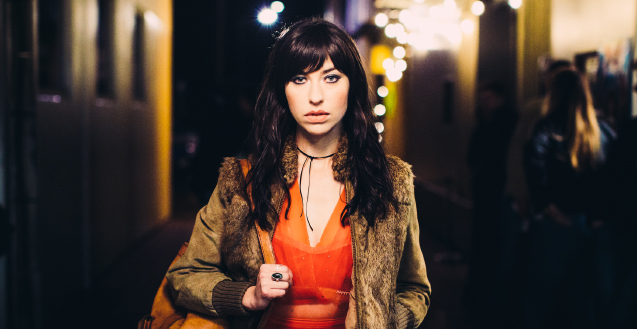
Now that you’ve got to the point of seeing the premiere, seeing the film with a room full of people who are watching it for the first time and being able to gauge their reaction, how do you feel about what you’ve done with this project? And do you sort of look ahead to doing something else in this area now?
I think the next step would be doing something non-musical and just acting. And I would feel like I have a good stepping stone for that now. My journey at the moment is writing my next album, so I am beginning to get ready for LP4. So I think I definitely don’t want to take time away from focusing on that. But at the same time, if something came up that I felt like I could bring a unique perspective to, I’m open, man. It’s good to keep your life varied. It’s good for you as a human to grow and be a beginner in a field and not always just do the thing that you know how to do best. And it’s a chance to make some really great new friends as well.
So even just from those standpoints, I’m pretty blessed that I even have the opportunity at all to step into that world. I’ll always be a musician first and foremost. I think there are reasons why I do what I do, and it’s for the fact that I get that immediate intimacy with people. And this a bit of a different timeline.
I was having a conversation with someone on Friday about organising a show that I worked on. He was like, “How do you do it?” And I said, “You kind of know 90% of what you’re doing, and you learn a little bit more every time.” Obviously, your step to being in a feature film was a larger percentage of skill challenge than that, but it’s what keeps things interesting.
Absolutely.
Otherwise, you’re just staying in your lane.
Yeah. You just stay comfortable and… yeah, that’s so true. That’s exactly why I took the role because I was like, “I’m bloody scared to do this.” And then I was like, “Well, that’s probably a good reason to do it” [laughs].
Do you think that you’ll apply that same sort of feeling about risk-taking to your next record?
Absolutely. I mean, I remember the risks that I took right before making The Golden Echo or actually, rather, before Primal Heart. I started doing a lot of improvised music, so just jumping up on stage with musicians I respected in a very jazz mindset and beginning to just take one note at a time, let the musicians take it and see where we go and just improvise the whole song.
This, to me, is a similar risk-taking thing of like, “Okay. I’ll throw myself into this and just hope I land.” And it does inspire the way you write because the more you’ve seen yourself do different things, the more courage you have the next time to give it a shot. If I’ve never done piano ballads and I’m always used to hearing myself with lots of production, I’m going to be really scared to sit down at a piano and think that I have what it takes to sell that. But if I’ve seen myself do Maisie, and Maisie crying at the bed with her father and I know that’s in my capacity to be authentic at that, then the next time you’re sitting down at a piano to do something, you can pull from those things, if that makes sense, you know? They don’t feel as scary and unknown.
No. I’m with you.
So I think it does directly play into my next round of writing. And I already play a lot of characters in my music anyway, I think. It’s never just like, “I am just being Kimbra.” It’s like I’m being this exaggerated version of myself. Yeah. So Maisie is like another character to put in the bag.


